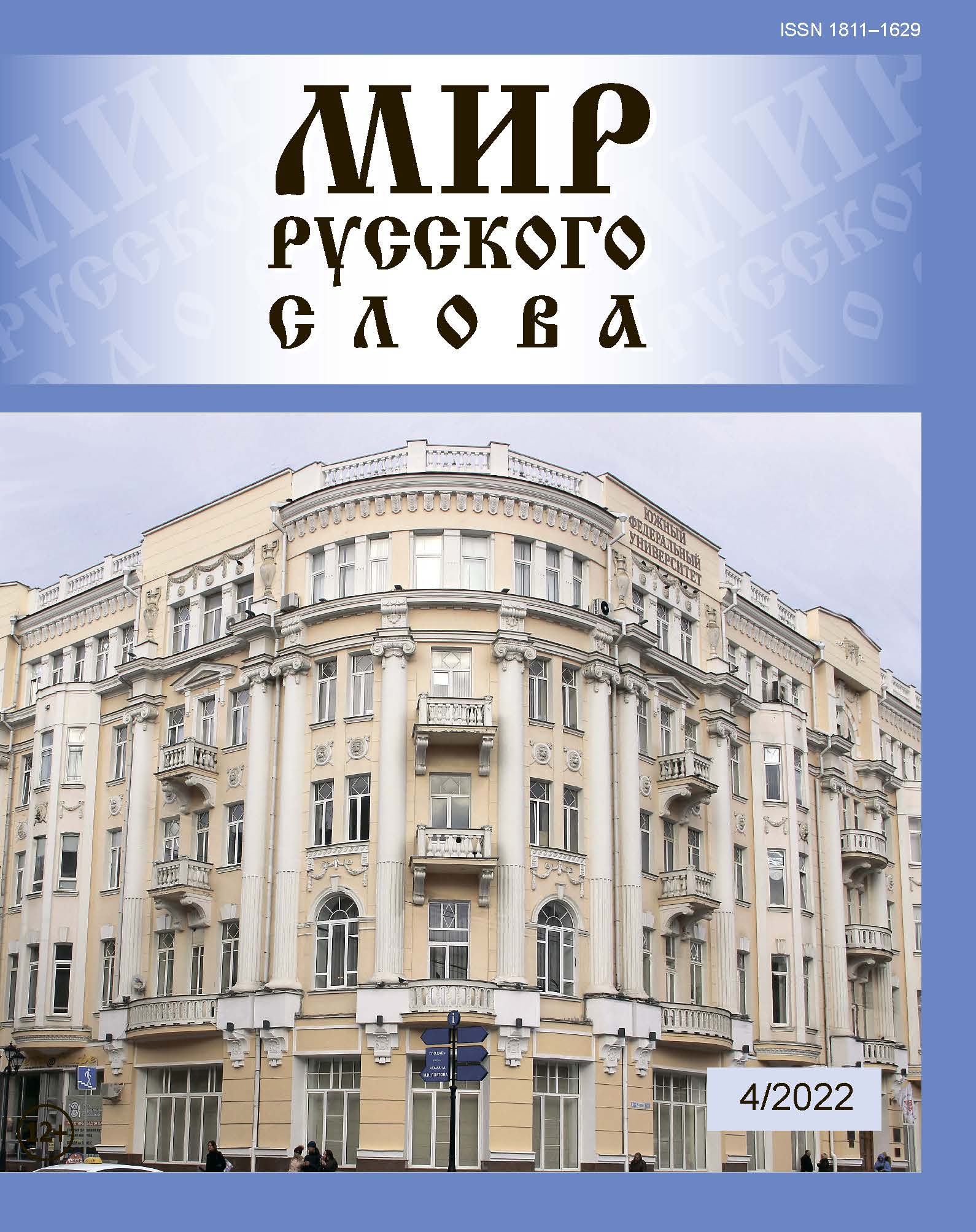A great way and a great road: how not to get lost? (syntagmatics of phraseological units as a reference in understanding them by foreigners)
DOI:
https://doi.org/10.24412/1811-1629-2022-4-91-100Abstract
The author argues that in teaching foreigners the Russian language, it is necessary to achieve
three goals: to teach how to use a foreign language system to formulate their own statements,
to teach to understand statements in a foreign language in accordance with the peculiar
properties of semantics and grammar, to acculturise students. The first goal is the simplest; the other two are achievable only if interrelated. The success of their
implementation can be determined by 1) preliminary analytical
work of the teacher with basic vocabulary in Russian as a foreign
language at each level in order to find the possibilities of adding
socioculturally relevant set expressions, derivationally associated
with the units of the basic vocabulary being mastered, 2) ranking
phraseological units according to difficulty of their comprehending,
and building the order of referring to them in classes, 3) selecting
newspaper publications with such set expressions, 4) carrying
out their preliminary quantitative and qualitative analysis to
identify the contexts that best meet the task of demonstrating to
a foreigner native speakers’ value system of the studied linguistic
culture, 5) face-to-face learning to carry out a syntagmatic and
contextual analysis as a means of perception and understanding
of the text. Due to the complexity of phraseological semantics,
all kinds of activities with fragments of modern journalistic texts
can be conducted to a sufficient extent only in a class of linguistics
students, in senior undergraduate, graduate and postgraduate
courses. The syntagmatic analysis routine should show a student
the discrepancy between the compatibility of the elements of the
variable combination and the compatibility of the phraseological
unit with its environment. The contextual analysis is to be carried
out for a student to discover the possibility of highlighting various
semantic features of words as independent language units and as
building material for phraseological units. At the same time, it is
necessary to demonstrate the preservation of the connection of
phraseological unit’s semantics in the context and the etymon of
the word that supports the internal form of the stable expression.
The analysis should show the foreigner the value system of
contemporary Russians.
Keywords:
Russian as a foreign language, phraseological unit, syntagmatics, synonyms, syntagmatic analysis, contextual analysis
Downloads
Downloads
Published
How to Cite
Issue
Section
License
Articles of "The World of Russian Word" are open access distributed under the terms of the License Agreement with Saint Petersburg State University, which permits to the authors unrestricted distribution and self-archiving free of charge.




